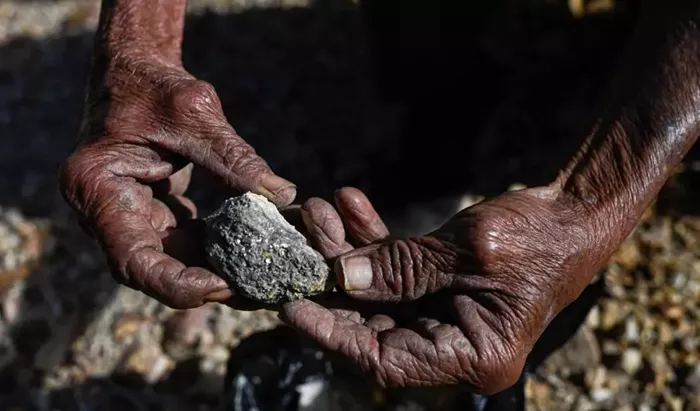El Salvador’s President Nayib Bukele has reignited a heated debate over the country’s gold mining policies, proposing to lift a ban on metal mining that has been in place since 2017. The move has sparked widespread outcry, with environmentalists, local communities, and experts voicing concerns over the potential ecological and social consequences.
El Salvador became the first country in the world to impose a ban on metal mining, following the warnings of health and environmental risks associated with mining chemicals such as cyanide and mercury. This decision was spearheaded by Bukele’s predecessor, former President Salvador Sánchez Cerén, whose administration responded to growing opposition from rural communities affected by mining-related environmental damage.
Other Central American nations have followed suit in restricting mining activities. Costa Rica and Honduras have both banned open-pit mining, while Panama introduced a moratorium on new mining concessions in response to large-scale protests against a proposed copper mine.
However, in a shift from previous policy, Bukele announced on November 27 that he intended to reconsider the ban. In a series of posts on the social media platform X, Bukele argued that El Salvador may possess some of the richest gold deposits in the world, claiming the country could have the largest gold reserves per square kilometer. He described the mining ban as “absurd,” emphasizing the economic potential of gold extraction for a nation with a population of 6.6 million.
Bukele cited an unpublished study—whose authorship remains unclear—that suggested mining just 4 percent of the country’s gold reserves could generate $131 billion, an amount equivalent to 380 percent of El Salvador’s GDP. “If we make responsible use of our natural resources, we can change the economy of El Salvador overnight,” Bukele stated in a follow-up post.
Economic Implications and Challenges
Since adopting the U.S. dollar in 2001, El Salvador’s economy has grown at a modest pace of 2 to 3.5 percent annually, with nearly 27 percent of the population living in poverty. Over 70 percent of the workforce operates in the informal sector, relying heavily on remittances from abroad. Bukele has previously taken bold economic steps, including the controversial move to adopt Bitcoin as legal tender in 2021, making El Salvador the first nation to do so. However, the cryptocurrency experiment has been met with skepticism by the public, and the country’s relationship with the International Monetary Fund (IMF) has suffered, complicating negotiations over a crucial $1.3 billion loan.
Now, Bukele is looking to mining as a potential economic lifeline. However, his proposal faces significant opposition from environmental groups and local communities that have long fought against the destructive impact of mining activities. Environmental activists argue that Bukele’s focus on gold mining risks reversing the environmental protections that have been hard-won over the years.
Environmental Concerns
Pedro Cabezas, leader of the Central American Alliance Against Mining, stressed the environmental dangers of Bukele’s plan, comparing the situation in El Salvador to mining projects in arid regions like Chile’s Atacama Desert. “It’s one thing to put a mine in the Atacama Desert, but another thing entirely to open an open-pit mine in Chalatenango,” Cabezas said. The Chalatenango region, located to the north of the capital, San Salvador, successfully opposed a proposed gold mine in 2006, citing the risks to local communities and water sources.
One of the most contentious aspects of Bukele’s plan is the proposed extraction of gold in areas surrounding the Lempa River, which supplies water to the capital. Antonio Pacheco, a representative of the Association of Economic and Social Development (ADES), warned that mining in these areas would pose a “tremendous risk” to residents, particularly considering the river’s vital role in the region’s water supply.
Local Perspectives on Mining
In the town of Santa Rosa de Lima, a former gold mining hub, the response to Bukele’s proposal has been divided. Ruben Delgado, a 55-year-old construction worker, expressed cautious optimism, believing that mining could bring economic prosperity and generate much-needed employment in the region.
On the other hand, Jose Torres, a 72-year-old artisanal miner who still works in abandoned mining tunnels, voiced concerns that large multinational companies might drive out small-scale miners like himself, depriving locals of their livelihood. The nearby San Sebastian River, heavily polluted by past industrial mining activities, remains contaminated, exacerbating concerns over the environmental impact of renewed mining operations.
Economic Prospects and Criticism
Economist Carlos Acevedo, former president of El Salvador’s Central Bank, raised doubts about the feasibility of Bukele’s claims. While the gold reserves touted by the president could theoretically help pay off the country’s substantial external debt—currently accounting for 85 percent of GDP—Acevedo cautioned that “there is no recipe for generating growth from one day to the next.” He emphasized that the actual economic benefits of mining would depend on factors such as the amount of royalties mining companies are required to pay and the broader market conditions for gold.
The debate surrounding Bukele’s push to scrap the mining ban underscores the broader tensions between economic development and environmental sustainability in El Salvador. As the country faces persistent poverty and slow economic growth, Bukele’s government will need to carefully navigate these complex issues to determine whether mining can truly deliver the promised economic boost without further damaging the nation’s environment and its people’s well-being.
Related topics:
What Did Spot Silver Close At Today


